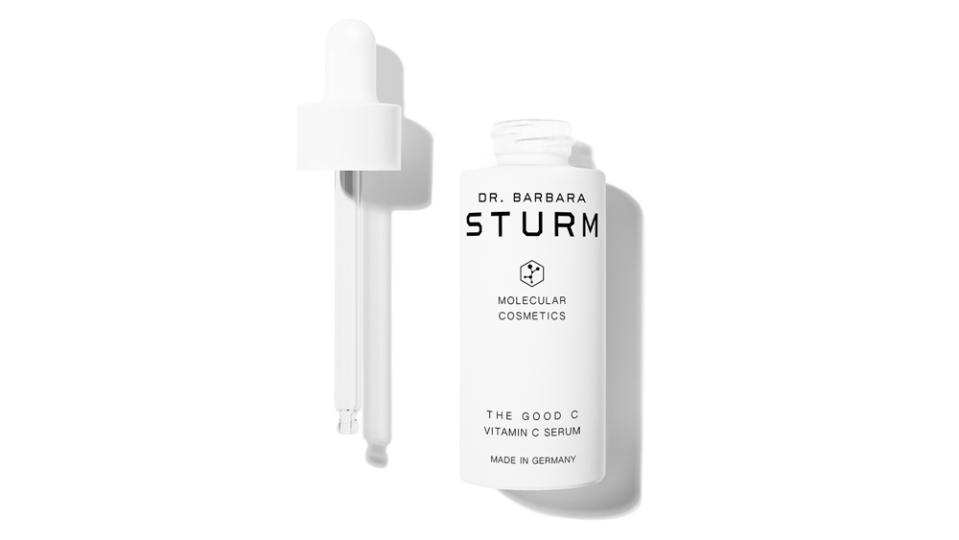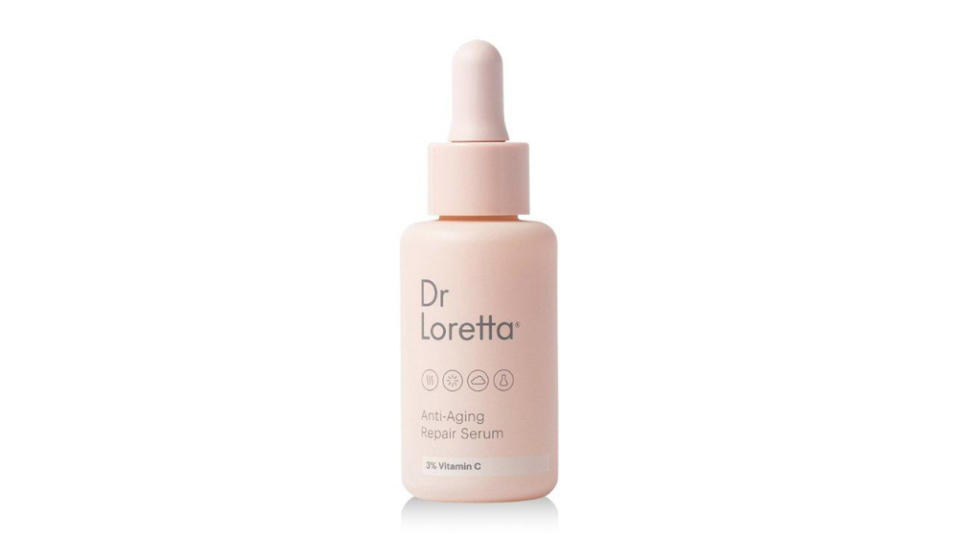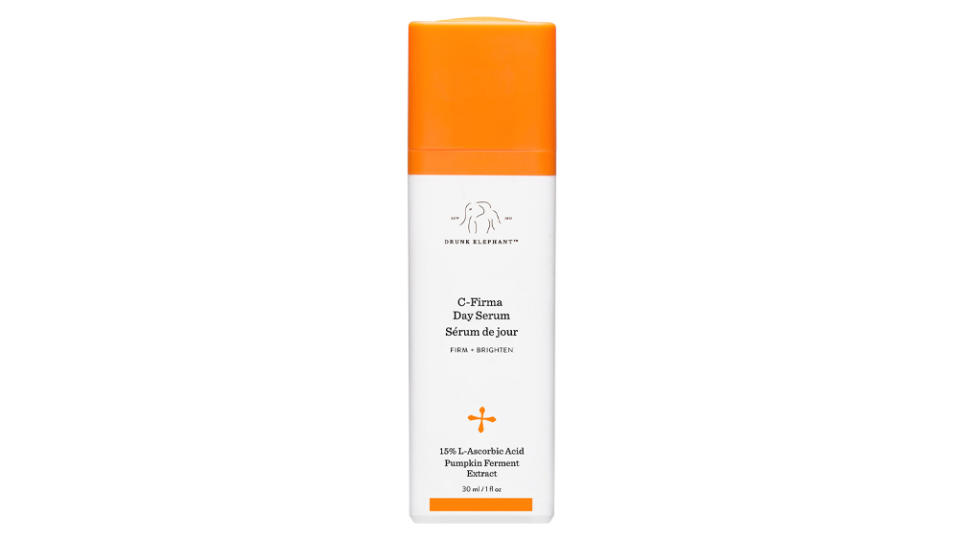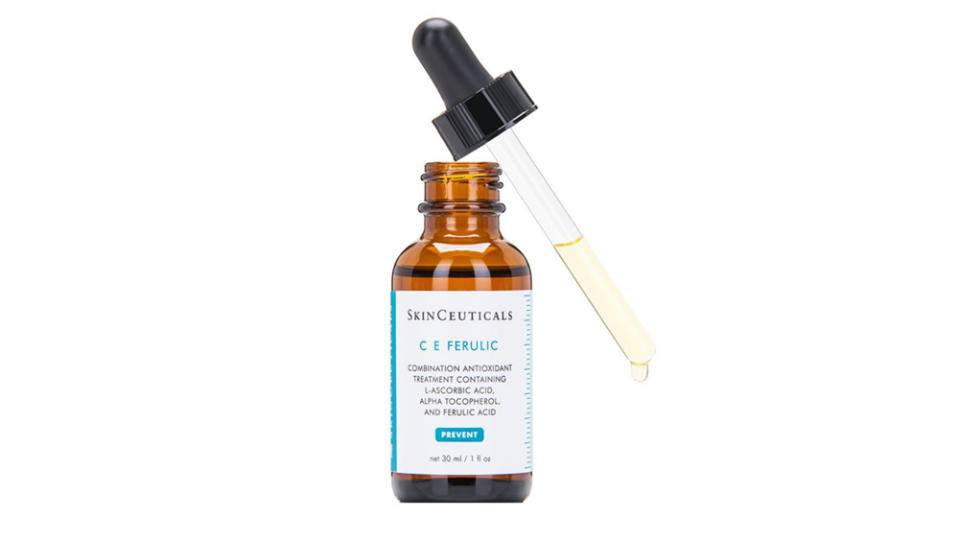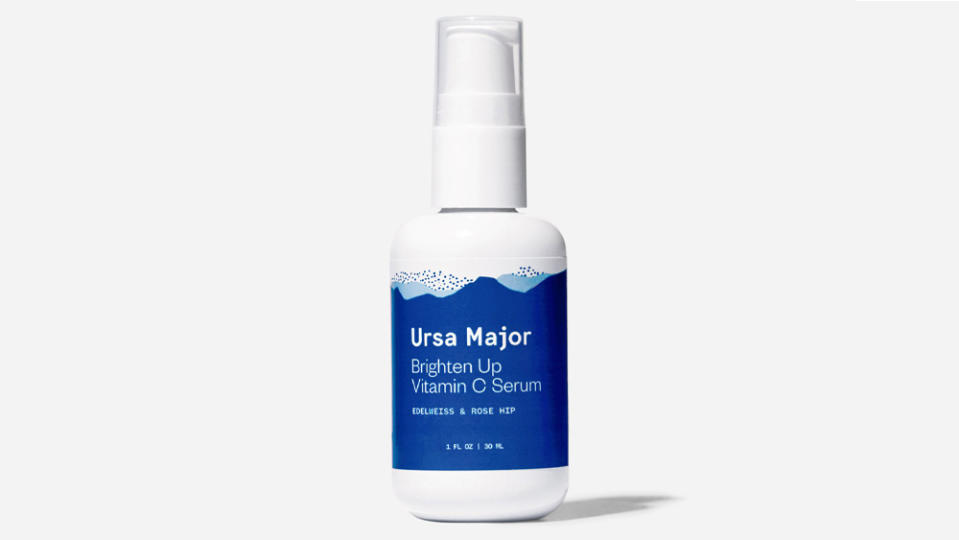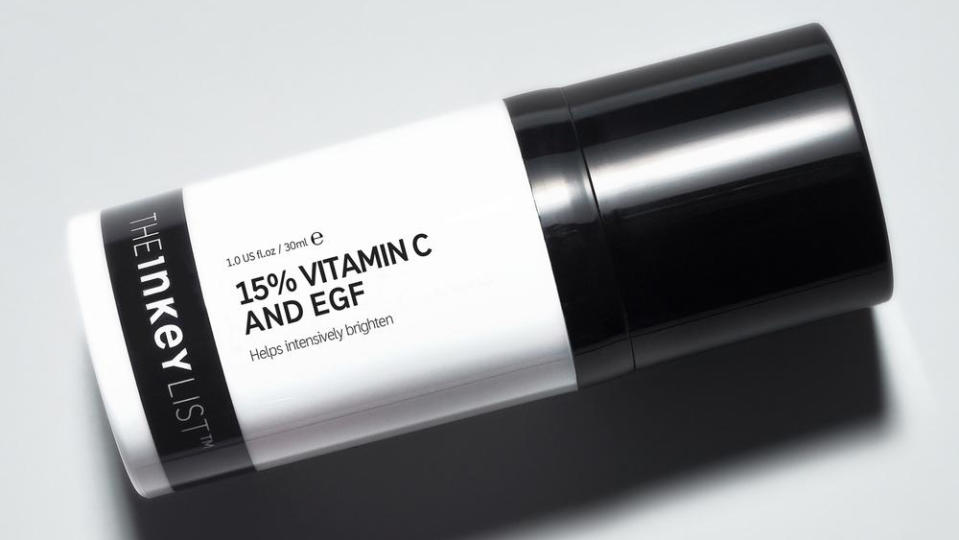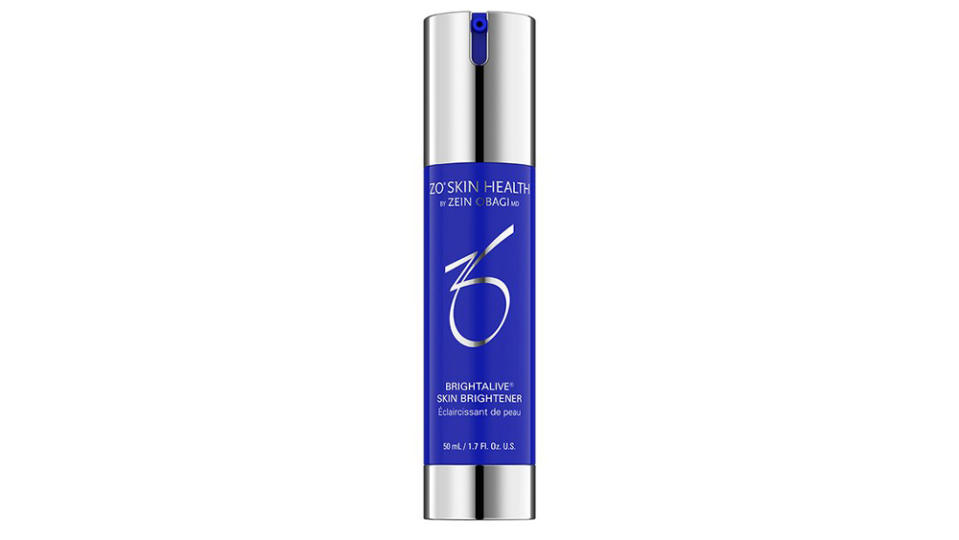The 6 Best Vitamin C Serums for Bright, Youthful Skin

The sands of time age our skin so gradually that it’s often hard to notice the effect. But as we age, it’s not uncommon to look at ourselves in the mirror and, every so often, notice something slightly off. It’s not entirely obvious to passersby, like tired puffy eyes or inflamed skin. No, instead it’s subtler, yet discernible to you and close friends: Dullness, let’s call it.
This drab condition is often accompanied by looser skin or discoloration (whether they’re merely dark spots or more drastic hyperpigmentation). It can also manifest as a combination of dryness, thanks to excessive exposure to sun or skin pollution (or a failure to incorporate SPF or any moisturizer in your regimen). When we talk about skincare products resulting in a brighter complexion, this dullness is exactly what it’s preventing or countering.
More from Robb Report
Robb Recommends: Love Authentic Paella? This Kit Will Help You Master the Classic Spanish Dish
Taste Test: A 43-Year-Old Single Malt Flavored by a 3,000-Mile Ocean Journey
Men's Sex Toys Don't Get Enough Love. Here Are 10 That Could Change Your Sex Life.
And at the heart of most brightening formulas is Vitamin C, an ingredient that improves skin tone and promotes overall radiance—as well as other anti-aging benefits. Read on for more information on the ingredient you’re seeing everywhere, as well as our favorite skin-brightening serums (plus one gentler alternative to Vitamin C, which is sometimes aggressive on sensitive skin).
The editors of Robb Report scour the globe (and the Internet) for the best of the best and only endorse products we love—and think you’ll love, too. If you purchase a product or service through a link in this story, we may receive a small commission.
What Vitamin C Does For Your Skin
Vitamin C has a few primary benefits in skincare:
Antioxidant properties: Vitamin C fights free radicals—the airborne pollutants—as well as UV rays. Antioxidants like Vitamin C prevent loss of firmness, as well as the development of wrinkles and fine lines and the overall dullness of one’s complexion.
Fights hyperpigmentation: Vitamin C also counters hyperpigmentation, a localized outbreak of pigment synthesis. The ingredient can also significantly lighten existing cases of brown spots on the skin.
Promotes firmness: Vitamin C boosts elastin and collagen production in the skin. This not only improves wound repair, but also keeps skin firm and resilient while preventing wrinkles, fine lines, puffy eyes and dark circles.
When and How to Use Vitamin C in Skincare
While Vitamin C is one of the more desirable ingredients in a thorough skincare regimen, it can also be one of the least stable. That’s because it oxidizes easily, and has a short shelf life in poorly engineered formulas. That underscores the importance of picking a good version—one that pairs well with other ingredients, too, so as to not be neutralized by the ingredients in the rest of your regimen. (Don’t worry, our list below has a range of stable picks.)
Vitamin C is typically used in the morning, after cleansing, via a serum or moisturizer. Because our nighttime regimens tend to incorporate more aggressive ingredients, the daytime is a safer time to deploy Vitamin C without compromising its powers. Serums are the preferred delivery mechanism, as they help the ingredient seep into the skin and work on corrective levels. Once it’s absorbed, seal it off with an SPF moisturizer to further defend against UV rays and skin-aging pollutants. (If you’re going to make the effort to fight toxins and sun damage, you need to make sure your entire regimen is united in preventing future damage.)
It’s also important to know that not all Vitamin C-carrying ingredients are equal. Read down our list of products to understand how they differ. But, most importantly, make sure you’re educated on the specific way your product of choice delivers Vitamin C to your skin—and avoid any Vitamin C products with a clear bottle or in a screw-off jar, because you want minimal light and air to protect against oxidation. Lastly, try to use up each product within 90 days of purchase.
When to Expect Results with Vitamin C Serums
Like any corrective skincare ingredient, this isn’t an overnight miracle. Independent of any other ingredients in each formula (and their own promised effects), you might notice changes to your skin’s brightness within a month, and significant improvement of hyperpigmentation and firmness after two to three months. Continued use is important, in order to prevent the formation of the same problems, and to maintain the results.
The 6 Best Vitamin C Serums
Dr. Barbara Sturm The Good Vitamin C Serum
Among all of our favorite serums, we chose Dr. Barbara Sturm’s as the best Vitamin C pick. It harnesses a 5 percent concentration of the deep-penetrating and highly stable version of Vitamin C—called tetrahexyldecyl ascorbate or THD—meaning it has a longer shelf life, is easier to pair with other skincare products and is oil soluble for easy absorption into the skin. But it doesn’t stop there: It also uses a synthetic Vitamin C as well as Vitamin-C rich Kakadu plum, plus hyaluronic acid to hydrate and plump skin, aloe vera to soothe and zinc to help transport all of these skin-brightening ingredients.
Dr. Loretta Anti-Aging Repair Serum
Dr. Loretta’s Vitamin C serum also uses THD. It’s a 3% concentration of the deep-penetrating and highly stable ingredient, and is combined with lilac stem cells to counter UV damage and boost collagen levels, as well as marine extracts to boost hydration and firmness in skin. This serum is one of the more rounded formulas on this list, and is designed for all skin types—even oily—since those lilac stem cells also help balance sebum production. However, one of its strengths is also that it delivers a healthy glow upon application. It has an oil-like quality, but wears light like a serum. Instead of feeling glossy or greasy, it leaves you feeling radiant, first thing in the morning.
Drunk Elephant C-Firma Fresh Day Serum, $78
Typically, when Vitamin C is contained in an opaque vessel and delivered by pump (as opposed to a pipette/dropper, it’s because the Vitamin C in play is ascorbic acid 10-20%. These means of delivery help preserve the unstable ingredient from oxidation, so that it has maximum impact upon application. That’s what’s up in Drunk Elephant’s excellent, pumpkin-tinged serum, which deploys the orange squash to help smooth dead surface cells while Vitamin C and ferulic acid brighten and firm the skin.
SkinCeuticals C E Ferulic Serum, $166
Leave it to the scientists at SkinCeuticals to buck the system: While you should remain skeptical of any eye-dropper deliveries of ascorbic acid, this is the exception. They’ve balanced the formula meticulously with Vitamin E and ferulic acid; you’re going to get every dollar’s worth here. This one isn’t formulated for oily skin, so it’s best reserved for anyone left of that on the spectrum, and will especially brighten dry and sensitive types. One curiously fun aspect of it, too, is that it even smells sciency, not in a bad way. Upon application, you’ll feel like a skincare chemist as it lingers on the senses for a few seconds—not to mention, when it impacts your complexion positively for weeks to come.
Ursa Major Brighten Up Vitamin C Serum
The newest launch on this list, Ursa Major’s Vitamin C derivative of choice is an ascorbic acid polypeptide. That’s a stable ingredient that converts to highly effective ascorbic acid once in the skin. Pair the polypeptide with Vitamin C-rich rosehip extract, soothing aloe, exfoliating Aspen bark, and anti-inflammatory rose extract… and you’ve got another big win from the ethos-forward, carefully clean and natural Ursa Major.
The INKEY List 15% Vitamin C + EGF Serum, $15
A bargain compared to the competition, The INKEY List offers a great introduction to Vitamin C with this serum. It uses ascorbyl glucoside, which converts to Vitamin C on the surface of the skin. There are fewer tests and confirmations of that specific ingredient’s potency, but this serum seems to suggest it works wonders—plus it is highly tolerated by sensitive skin types. The EGF in its name stands for Epidermal Growth Factor, which boosts cellular regeneration and is thus a reason The INKEY List suggests using this serum both morning and night (while most other Vitamin C serums are daytime applications). For this price, it’s a no-brainer to use it twice a day: You may go through it quickly, but it’s easy to replace—a low-cost investment in your skin.
The Vitamin C Alternative: Tranexamic Acid
ZO Skin Health Brightalive Skin Brightener
One ingredient growing in popularity among skincare brands is tranexamic acid, a gentle-on-skin derivative of lysine (itself an amino acid that helps boost collagen production). While it’s not necessarily a direct alternative for Vitamin C, tranexamic acid is particularly ideal in neutralizing the effects of UV exposure and reducing dark spots on the skin. And many people in pursuit of Vitamin C serums are in fact after this effect, as opposed to countering dullness.
In essence, you can use either ingredient for both functions. Studies lean slightly towards tranexamic acid, but nominally so. Vitamin C remains the brand favorite. If you’re curious to try the highly tolerant tranexamic acid, though, consider a nightly treatment cream, like ZO Skin Health Brightalive Skin Brightener.
Best of Robb Report
Sign up for Robb Report's Newsletter. For the latest news, follow us on Facebook, Twitter, and Instagram.

